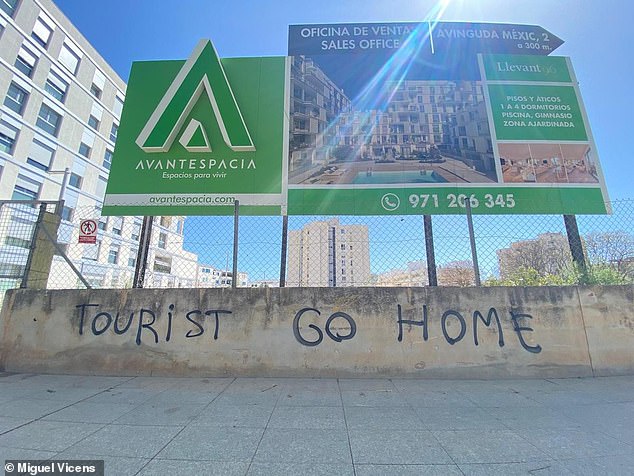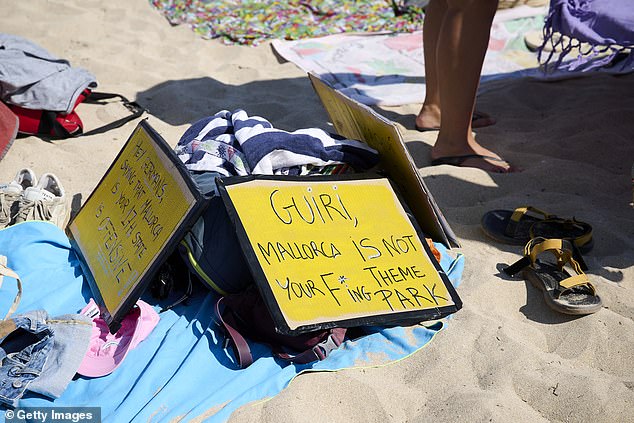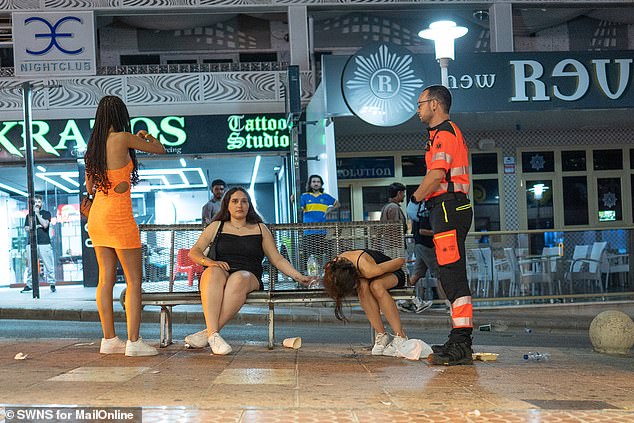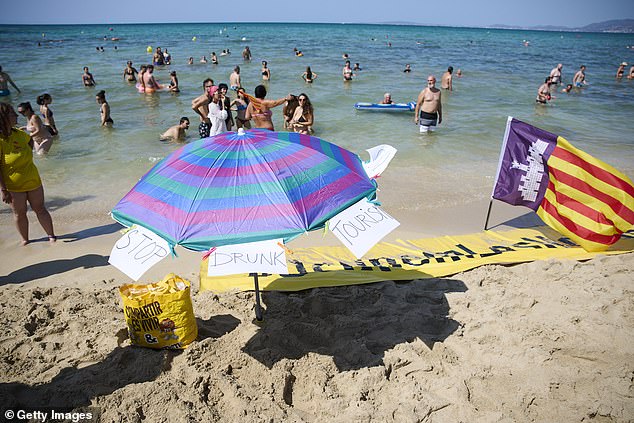Mallorca has seen its bar and restaurant takings fall by 20% despite a record number of visitors – after the number of Britons plummeted following anti-tourism protests.
The number of Britons who spent their holidays in the Balearic Islands in July was 10 percent lower than the previous month, according to data from the Spanish Data Protection Agency. Mallorca Daily Bulletin information.
Anti-tourism activists have been marching across Spain all summer, with locals accusing “low-quality” visitors of flocking to the country, with some pointing the finger at “drunk” Brits.
When 50,000 Spaniards took to the streets of the Mallorcan capital Palma on July 21, some protesters held up banners with the message in English: “Get your drunks out.”
But along with the drop in British tourists visiting Mallorca there was also a 20 per cent drop in turnover in bars and restaurants, which according to the Majorca Daily Bulletin presents a “worst case scenario” for Mallorcans.
The paper said locals expect fewer tourists spending more, rather than more tourists spending less, which translates into less income for locals who rely on the tourism industry to stay afloat.
Three signs taped to a beach umbrella read “Stop drunk tourists” during an anti-tourism protest in August.

The words ‘Go Home Tourist’ were scrawled in English on a wall beneath a property promotion sign in Nou Llevant, Mallorca, a neighbourhood that has seen a massive influx of foreign buyers in recent years.

Activists who protested in August said they chose a beach in Palma because it is known for drunkenness and disorder.
This comes as hundreds of bars and restaurants in Mallorca face imminent closure after the worst season since Covid and tourists tighten their belts.
The warning has been issued by the catering industry’s employers’ association, PIMEM-Restauración, which claims that its members are being strangled by three essential factors: the lack of qualified personnel, the increase in personnel and activity costs and the fall in sales.
Its president, César Amable, says that the increase in travel and accommodation prices has hit his sector and other pillars of the complementary offer such as commerce this summer.
‘The average stay has been shortened and tourists’ budgets have been limited, thus penalising extraordinary travel expenses, a situation that has ended up confirming the least profitable season in recent years, pandemic period aside,’ he said.
Restaurateurs are now calling for the creation of a hospitality agreement of their own that differentiates their conditions from those of hoteliers, as is already the case in other regions of Spain such as La Rioja, Madrid or Guipúzcoa at the provincial level.
The wage increases, they say, are unaffordable for a sector that has seen its turnover fall by around 20 percent this season compared to last season.

Paramedics attend to a girl who fainted on a bench on the tourist island of Mallorca
The collective agreement has increased staff costs by 25.3 percent since 2018, while the price of meals has risen by 10 percent in the same period.
Mallorca has also seen a 13 per cent drop in the number of tourists arriving on the island from the Iberian Peninsula.
However, the drop in the number of British and Spanish tourists was offset by an increase in the number of German visitors.
This comes after a summer of anti-tourism campaigning in Spain, with a member of the residents’ association of a Menorcan village dubbed the “Spanish Mykonos” telling MailOnline earlier this year: “We are not against tourism, we are just against uncivil people.”
Malaga directly addressed the unruly behaviour of British tourists with a campaign this summer, warning visitors to dress appropriately and respect local customs.
The Spanish city has launched a campaign, with 17 billboards and numerous posters, aimed at curbing behaviour that has angered locals, especially during the peak tourist season.
The signs, written in English and featuring the Union flag, directly address behaviours often attributed to British tourists. Tourists are reminded to respect municipal bylaws or face fines of up to €750 for breaches.
The campaign, promoted by the Malaga Tourism Department, highlights four major problems: inappropriate clothing, litter, excessive noise and reckless use of electric scooters.


